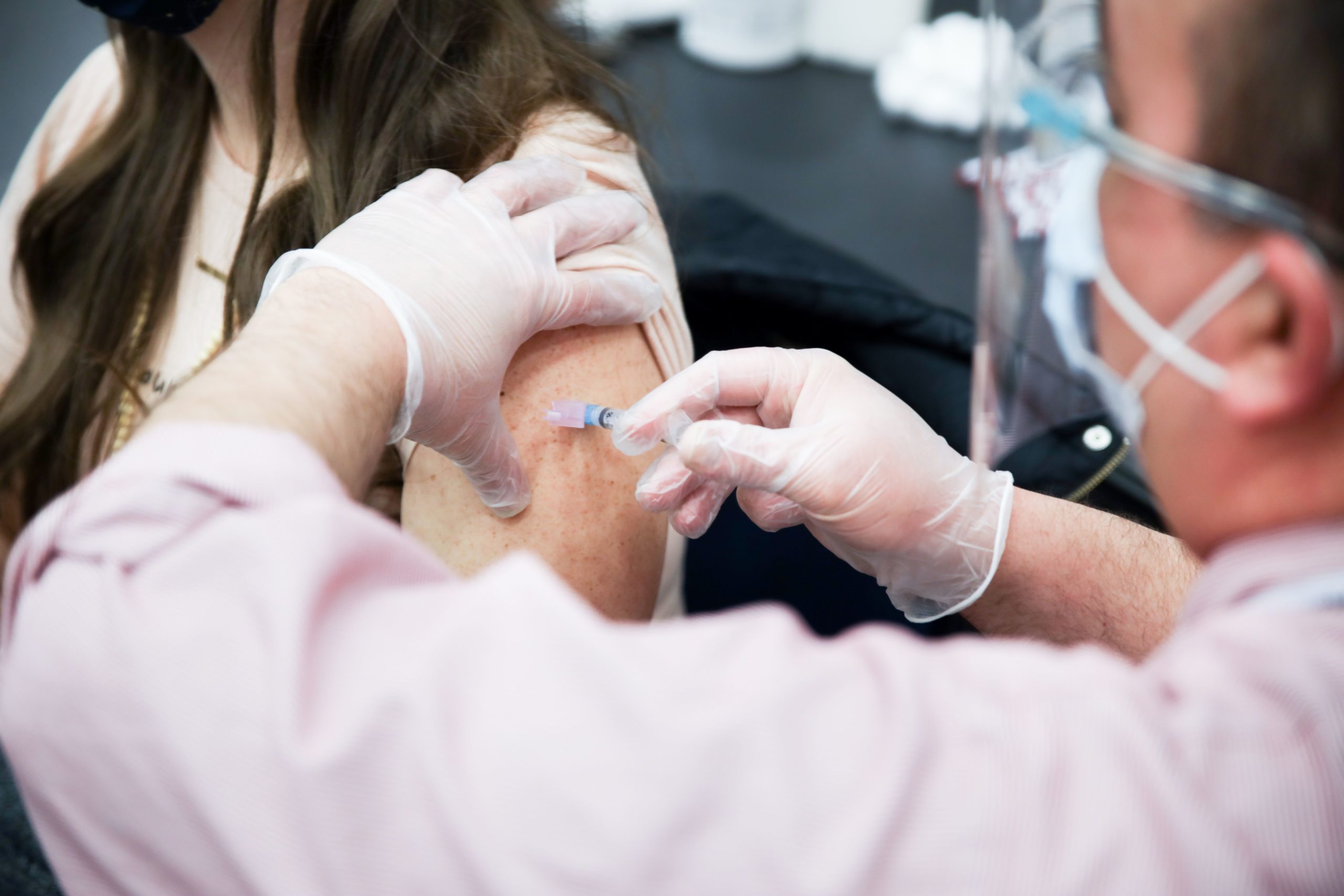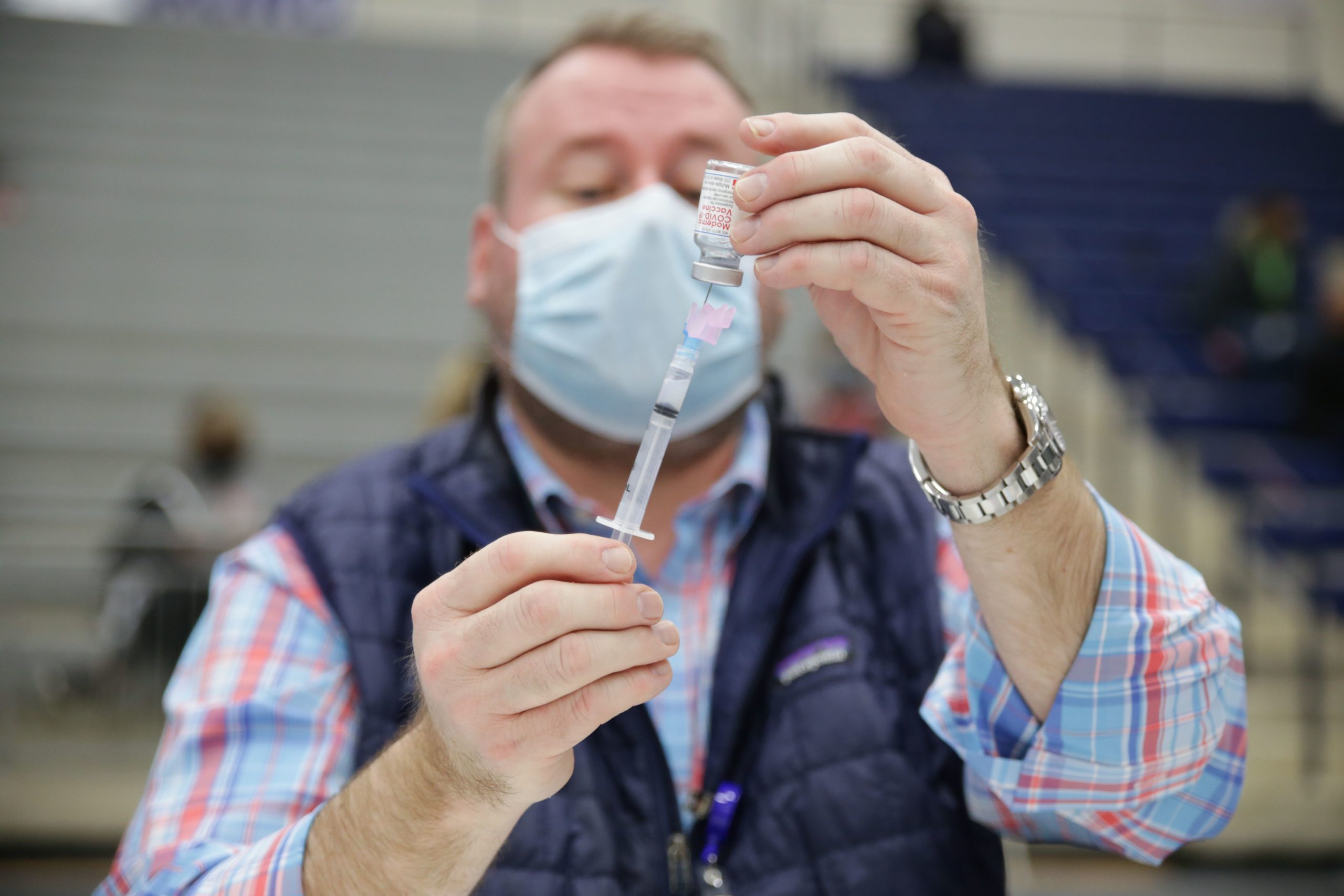People who have been fully vaccinated against COVID-19 are not required to quarantine after exposure, the Centers for Disease Control and Prevention (CDC) said Wednesday.
Those who have been vaccinated are not required to quarantine if at least two weeks but not more than three months have passed since they received the last dose of the vaccine and they have remained asymptomatic since COVID-19 exposure, the CDC said.

Educational staff at Kettering City Schools receive the COVID-19 vaccine in Dayton, Ohio, on Feb. 10, 2021. (Photo by MEGAN JELINGER/AFP via Getty Images)
For people who have been given single-dose vaccines, the same recommendation applies. People who have not met the criteria should follow regular quarantine guidelines after exposure to someone who may have COVID-19 or has tested positive.
“Although the risk of SARS-CoV-2 transmission from vaccinated persons to others is still uncertain, vaccination has been demonstrated to prevent symptomatic COVID-19; symptomatic and pre-symptomatic transmission is thought to have a greater role in transmission than purely asymptomatic transmission,” the CDC said in the guidance.
The CDC added that avoiding unnecessary quarantine has individual and societal benefits that “outweigh the potential but unknown risk of transmission” while allowing public health experts to focus resources on people at highest risk of infecting others with the virus. (RELATED: ‘Open Season’ — Fauci Predicts All Americans, Not Just At-Risk People, Will Have Vaccine Access By Late April)
A recent study by Israel’s largest coronavirus testing lab showed that the Pfizer-BioNTech vaccine can reduce the transmission of COVID-19. People who have received the vaccine may still test positive, but have smaller amounts of the virus in their bodies, leading to less viral shedding and therefore a smaller risk of spreading COVID-19, The Wall Street Journal reported.

Walgreens staff prepare COVID-19 vaccines in Dayton, Ohio on February 10, 2021. (Photo by MEGAN JELINGER/AFP via Getty Images)
Although Pfizer says the vaccine is about 95% effective at preventing COVID-19 symptoms, data is lacking on the vaccine’s effect on asymptomatic infection and transmission.
Moderna found in trials that asymptomatic infections start to be prevented after the first dose of its two-dose vaccine. The two doses of the Pfizer and Moderna vaccines are supposed to be given three and four weeks apart from the first dose.
Fully vaccinated people should still be cognizant of any COVID-19 symptoms for 14 days after a potential exposure, the CDC said in the update. If there are symptoms, the individual should be tested for the virus.












